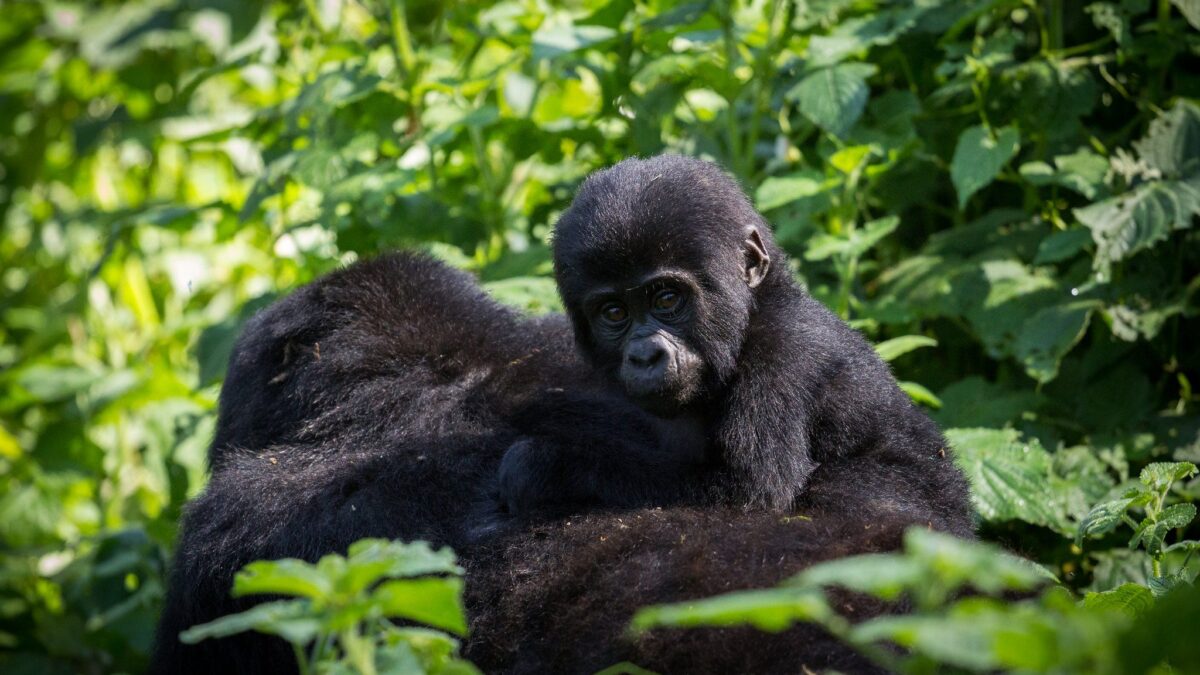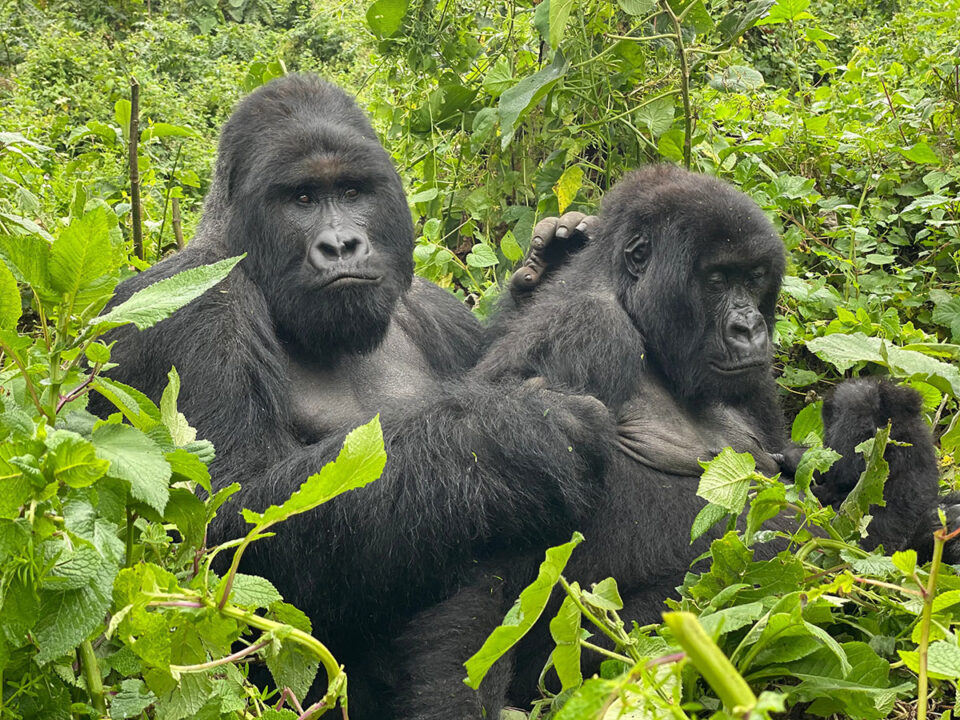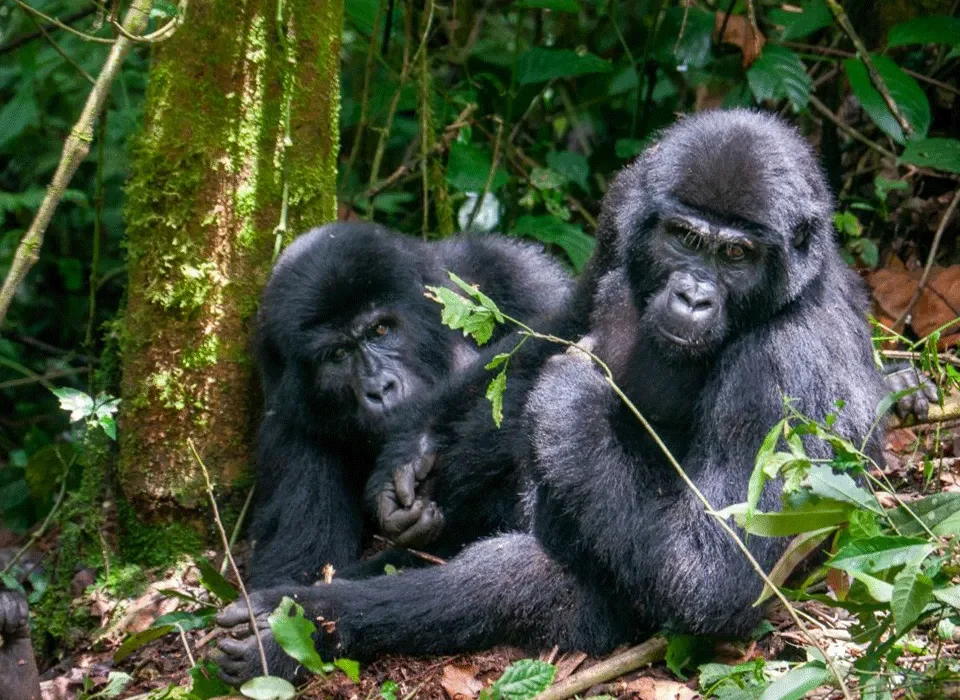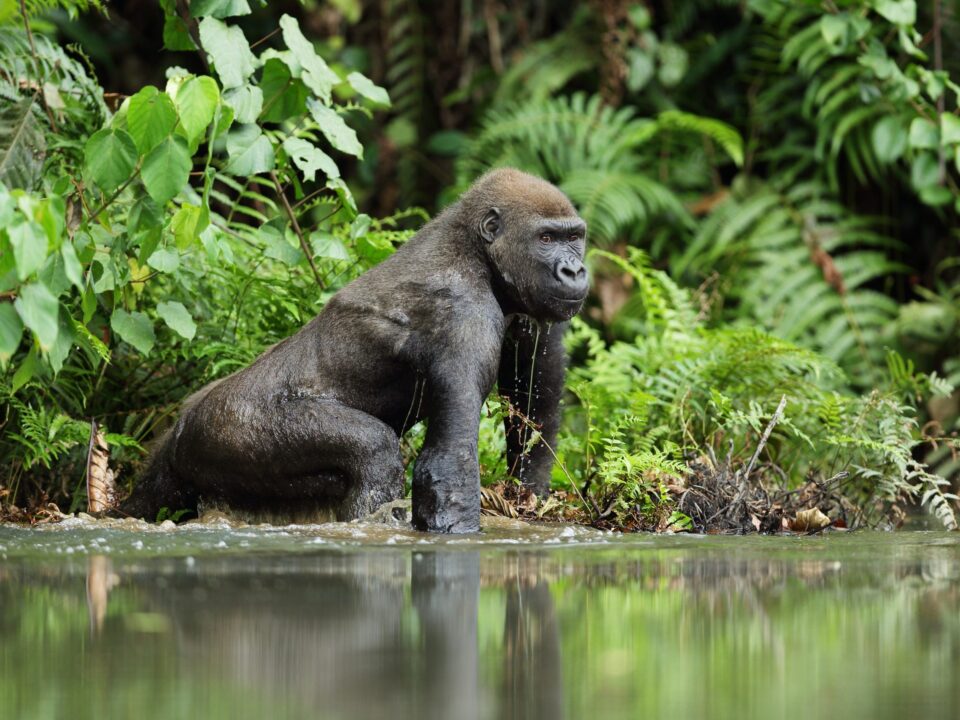Choosing Between Gorilla Trekking in Uganda and Rwanda

Mombasa Carnival in November
March 25, 2024
Updated Nyungwe National Park Fees
March 25, 2024Choosing Between Gorilla Trekking in Uganda and Rwanda
Choosing Between Gorilla Trekking in Uganda and Rwanda — For travelers interested in embarking on the incredible journey of gorilla trekking, deciding between Uganda and Rwanda can be a challenging task. Both countries offer unique experiences, each with its own allure and attractions. One of the primary factors influencing this decision is the significant difference in the cost of gorilla trekking permits. In Uganda, the permit costs USD800 per person per trek, whereas in Rwanda, it amounts to USD 1500. Despite the price discrepancy, both options provide a once-in-a-lifetime opportunity to encounter endangered mountain gorillas in their natural habitat.
Gorilla Trekking Experience: Uganda vs. Rwanda
When it comes to the actual gorilla trekking experience, there are subtle differences between Uganda and Rwanda. While both countries are home to mountain gorillas, the vegetation and terrain vary slightly. In Rwanda’s Volcanoes National Park, the gorillas reside amidst the Virunga ranges, characterized by bamboo forests. On the other hand, Uganda’s Bwindi Impenetrable Forest National Park boasts a lush rainforest teeming with diverse flora and fauna. Despite these distinctions, the chances of encountering gorillas are equally high in both countries, with a success rate of approximately 99%.
Making the Choice: Uganda or Rwanda?
Deciding between Uganda and Rwanda for gorilla trekking ultimately boils down to personal preferences and logistical considerations. Rwanda’s Volcanoes National Park offers the advantage of proximity, being just a 2-3 hour drive from the capital city of Kigali. In contrast, reaching Bwindi Impenetrable Forest National Park in Uganda requires a longer journey of 8-9 hours from Entebbe. However, innovative tour operators now offer routes via Kigali, reducing travel time to 4-5 hours and making Uganda a more accessible option.
Moreover, opting for gorilla trekking in Uganda presents a significant cost-saving opportunity, with permits priced at USD800 compared to Rwanda’s USD 1500. This substantial price difference allows travelers to allocate their budget more efficiently and potentially explore additional attractions in both countries. By obtaining the East African Visa, visitors can conveniently visit both Uganda and Rwanda at an affordable rate, maximizing their adventure in the region.
Booking Your Gorilla Trekking Safari in Uganda
Securing a gorilla tracking safari in Uganda involves several steps, beginning with the purchase of a gorilla permit from the Uganda Wildlife Authority. The permit costs USD800 for foreign non-residents and USD700 for East African residents. Due to the limited availability of permits, it is advisable to book well in advance, preferably 3-5 months prior to your intended visit. Once the permit is secured, tour operators can assist in arranging accommodations, transportation, and customized itineraries tailored to your preferences and budget.
Best Time for Gorilla Trekking in Uganda
Gorilla trekking safaris in Uganda can be enjoyed year-round, although certain seasons offer more favorable conditions. The drier months of January, February, and June to early September are ideal for trekking, as the reduced rainfall makes travel easier and provides clearer visibility. However, some travelers prefer the rainy season for gorilla tracking, as the lush vegetation enhances the overall experience and increases the chances of gorilla sightings.
Where to Stay and How to Get There
Accommodations near Bwindi Impenetrable Forest National Park are available in various price ranges, from budget-friendly lodges to luxury resorts. Tour operators can assist in booking accommodations based on your preferences and the location of your gorilla trekking adventure. Accessing Bwindi and Mgahinga Gorilla National Parks can be done by road from Entebbe or Kampala, with travel times ranging from 9-10 hours. Alternatively, flying to nearby airstrips in Kisoro or Kihihi provides a quicker and more convenient option for reaching the parks.
Comparing Gorilla Trekking Experiences in Uganda and Rwanda
When deciding between gorilla trekking in Uganda or Rwanda, understanding the differences in vegetation and trekking experience is crucial. In Rwanda’s Volcanoes National Park, mountain gorillas inhabit the Virunga ranges, characterized by bamboo as the predominant vegetation. Contrastingly, Uganda’s Bwindi Impenetrable Forest National Park boasts a lush tropical rainforest teeming with diverse flora. While Rwanda’s gorillas may be easier to spot due to the sparse bamboo, both destinations offer a remarkable chance to encounter these endangered primates in their natural habitat.
Accessibility Considerations: Uganda vs. Rwanda
Accessibility plays a significant role in choosing between the two destinations. Volcanoes National Park in Rwanda offers a distinct advantage in terms of proximity, being just a 2-3 hour drive from Kigali. In contrast, reaching Bwindi Impenetrable National Park in Uganda involves a longer journey, historically deterring some travelers. However, with the option to arrange tours from Kigali to Bwindi, the drive is significantly reduced to 4-5 hours, making Uganda a more accessible choice for many.
Lodging Options: Uganda vs. Rwanda
Both Uganda and Rwanda offer a range of lodging options, from budget to luxury accommodations near their respective national parks. Volcanoes National Park stands out for its super-luxury lodges, such as Bisate Lodge and Singita Kwitonda Lodge, providing world-class amenities and services. Alternatively, Bwindi boasts numerous budget-friendly options, making it a suitable choice for travelers seeking more economical accommodations.
Gorilla Families: Uganda vs. Rwanda
When it comes to the number of habituated gorilla families available for trekking, Bwindi has the edge over Volcanoes National Park. With 16 habituated gorilla groups compared to Volcanoes’ 12, Bwindi offers greater flexibility in obtaining trekking permits, especially during peak seasons. This abundance of families in Bwindi increases the likelihood of securing permits for gorilla trekking.
Gorilla Trekking Experience: Uganda vs. Rwanda
Ultimately, the gorilla trekking experience in both destinations is equally rewarding. While Rwanda may offer easier sightings due to the sparse vegetation, Bwindi provides the opportunity for a more immersive encounter with mountain gorillas. Moreover, Bwindi offers gorilla habituation experiences, allowing visitors to spend extended periods observing these magnificent creatures under the guidance of trackers and researchers.
Affordability: Uganda vs. Rwanda
One significant difference between Uganda and Rwanda is the cost of gorilla trekking permits. Uganda’s permits are priced at USD800 for foreign non-residents, significantly lower than Rwanda’s $1500 fee. This price disparity reflects each country’s tourism strategy, with Uganda emphasizing affordability while Rwanda positions itself as a luxury destination.
Conclusion
Whether you choose to trek gorillas in Uganda or Rwanda, both destinations offer unforgettable experiences in the presence of these majestic creatures. With considerations such as accessibility, lodging, and affordability, travelers can make an informed decision based on their preferences and budget. Regardless of the choice, Trek Africa Expeditions stands ready to facilitate tailored safaris and ensure a memorable adventure in either Uganda or Rwanda.




